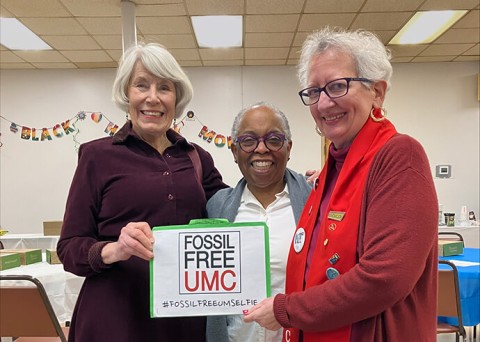UMC fossil fuels divestment debate returns

Judy Smith, Cynthia Taylor, and Sherie Koob of the UMC Baltimore-Washington Conference, show support for Fossil Free UMC, a grassroots caucus supporting divestment of fossil fuel company stocks owned by United Methodist institutions. (Photo by Mike Koob)
Should United Methodist institutions divest of fossil fuel company stocks as a matter of Christian principle? Or is the faithful path to remain engaged and lean on companies to do more about global warming?
The church’s divestment vs. engagement debate is not new but will be revived at the general conference beginning April 23 in Charlotte, North Carolina.
Some delegates know where they stand, including Karen McElfish, a retired pediatrician from the Virginia Conference. She’s strong for divestment.




